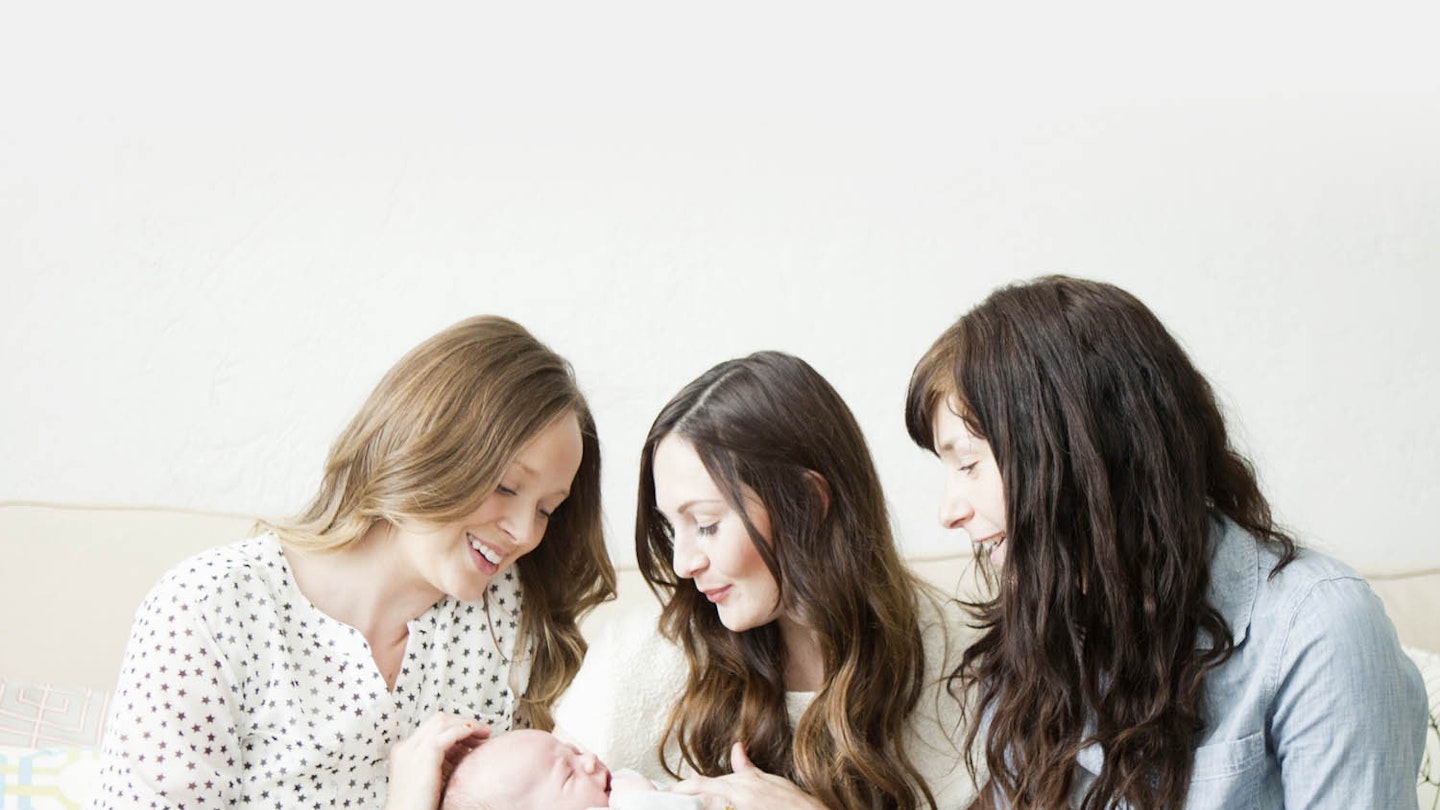It’s easy to forget old pals, what with the nappies and new-mum chums. Here’s how to keep hold of them…
When you have a baby, your friendships – along with your body shape, relationship with your partner and just about everything else in your life – can change dramatically.
Whether you have less time for your old friends or they have less time for you and your little one, becoming a parent can test even the strongest of friendships.
‘It’s natural for a new mum to fall so in love with her baby that there is little emotional energy left for anyone else, including her friends,’ says psychologist Dr Irene Levine.
‘The logistics of taking care of a newborn can be disruptive. And you may feel so overwhelmed by your new responsibilities that your life is no longer your own. It’s common for friendships to take a back seat.’
You’ll realise how essential your old friendships are for your emotional wellbeing
When you find time for a chat, you may prefer to speak to new mums you’ve met at prenatal classes who are struggling through the same re-adjustment. But once you emerge from your new baby bubble, you’ll realise how essential your old friendships are for your emotional wellbeing. You may regret letting a friendship fall by the wayside.
‘Being with old friends allows a new mum to rejoin the world of adults,’ says Irene. ‘Investing time with old friends makes women better, happier mothers.’
Have baby-free dates
‘Friends will want to visit your baby for the first time, but once the visitors tail off, it’s important to schedule in time to see them without your baby,’ says Irene. Put dates in the diary and stick to them, so friends don’t get lost among nappies and feeds.
Turn to old pals
‘In prior generations, family and friends helped new mums master the art of mothering,’ says Irene. ‘If you’re having trouble breastfeeding or getting your baby to sleep through the night, ring a friend who has older kids for advice.’
Invite friends without kids
‘Make child-free friends feel they’re still a part of your life,’ says Irene. ‘Involve them in family get-togethers, like birthdays.’ Make your old pal an honorary aunt or, if you’re very close, a godparent. This will help the bond between you and create one between her and your baby.
It’s not all about baby
‘Conversation shouldn’t revolve around baby talk. That can get boring fast,’ says Irene. And don’t over share. The odd cute picture and ‘he got his first tooth!’ text are OK, but don’t go on about how he’s rolling weeks before his NCT friends. Friends without children often don’t care. ‘A child-free friend may also feel uncomfortable as she renegotiates your friendship,’ adds Irene. ‘Show interest in her life as well – her latest work saga is as exciting to her as your latest baby dilemma.’
Be sensitive
Not everybody wants or can have a child. So, don’t ask your child-free friend when she’s going to have a baby. You may feel life has meaning now you’re a mum or wonder what you did before having a baby, but don’t share these revelations with childless friends.
If a friendship fades…
‘Not all friendships survive children,’ says Irene. ‘If you try to stay in touch and your friend doesn’t reciprocate, or you find you have less to talk about, it’s likely the friendship has run its course. That’s OK – you’ll find other friend to fill the gap.’
